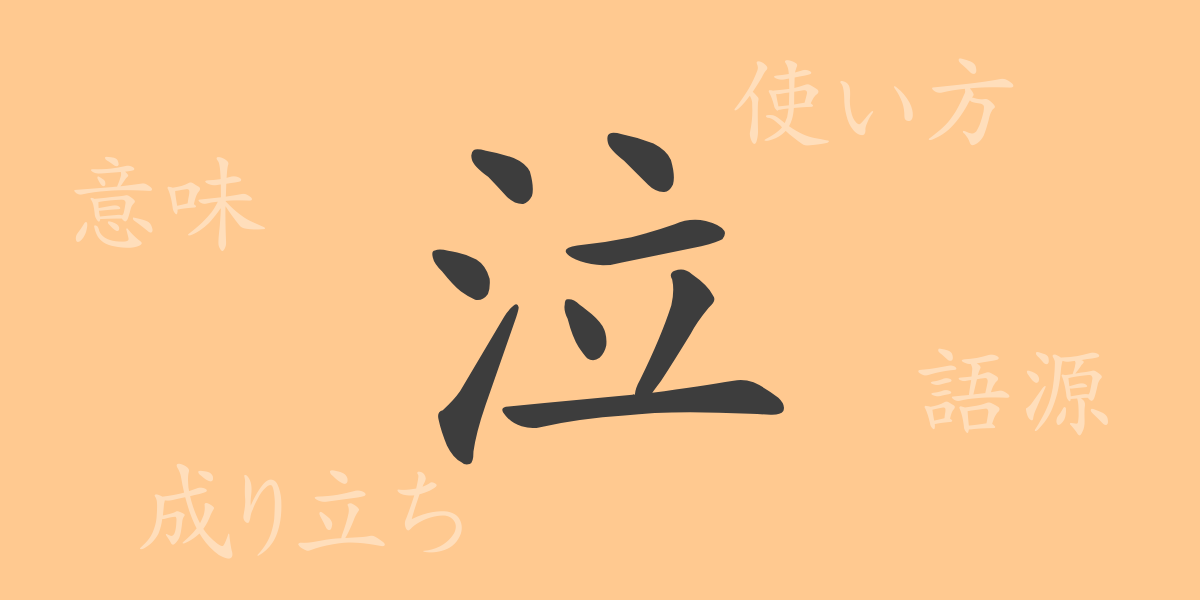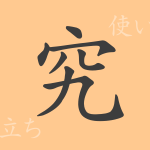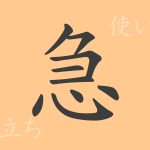A single tear can hold joy, sadness, emotion, and sometimes the power to heal. The Japanese kanji “泣(なく, naku)” has long been used to symbolize these rich emotional expressions. In this article, we will delve into the common kanji “泣(なく, naku),” exploring its origins, meanings, usage, readings, stroke count, and radicals. Additionally, we will introduce idiomatic expressions and proverbs that use “泣(なく, naku).” Let’s explore the world of “泣(なく, naku)” through the lens of tears.
Origin of 泣(なく, naku)
The kanji “泣(なく, naku)” is a logographic character derived from pictographs. In ancient China, “氵(さんずい, sanzui)” was used to signify water, representing tears, and a modified form of “立(りつ, ritsu)” to depict a person crying. This combination created the character “泣(なく, naku),” visually capturing the image of tears streaming down a person’s face and expressing the movement of emotions.
Meaning and Usage of 泣(なく, naku)
The kanji “泣(なく, naku)” means to shed tears and represents various emotional expressions, such as sadness or joy. It is most commonly used as the verb “泣く(なく, naku)” but can also appear in nouns like “泣き声(なきごえ, nakigoe)” (crying voice) and “泣き顔(なきがお, nakigao)” (tear-stained face).
Readings, Stroke Count, and Radical of 泣(なく, naku)
Let’s take a closer look at the readings and structural elements of “泣(なく, naku).”
- Readings: The on-yomi (Chinese reading) is “キュウ(kyū),” and the kun-yomi (Japanese reading) is “なく(naku).”
- Stroke count: “泣(なく, naku)” consists of 8 strokes.
- Radical: The radical is 水(みず, mizu), known as “さんずい(sanzui),” which indicates relation to water.
Idioms, Proverbs, and Expressions Using 泣(なく, naku)
Idioms, proverbs, and expressions that include “泣(なく, naku)” carry deep meanings and teachings. Here are a few examples:
- 泣きっ面に蜂(なきっつらにはち, nakittsura ni hachi): When one misfortune follows another.
- 泣く子と地頭には勝てぬ(なくことじとうにはかてぬ, nakuko to jitō ni wa katenu): Describes situations where reasoning is futile.
- 泣いて馬謖を斬る(ないてばしょくをきる, naite bashoku o kiru): An old saying that teaches the importance of making the right decisions without being swayed by emotions.
Summary of 泣(なく, naku)
The kanji “泣(なく, naku)” is a richly expressive character used to depict human emotions. It encapsulates complex feelings such as joy and sorrow, symbolizing the richness of emotional expression in the Japanese language. Through idioms and proverbs, we can deeply appreciate the profound meanings carried by “泣(なく, naku).”

























